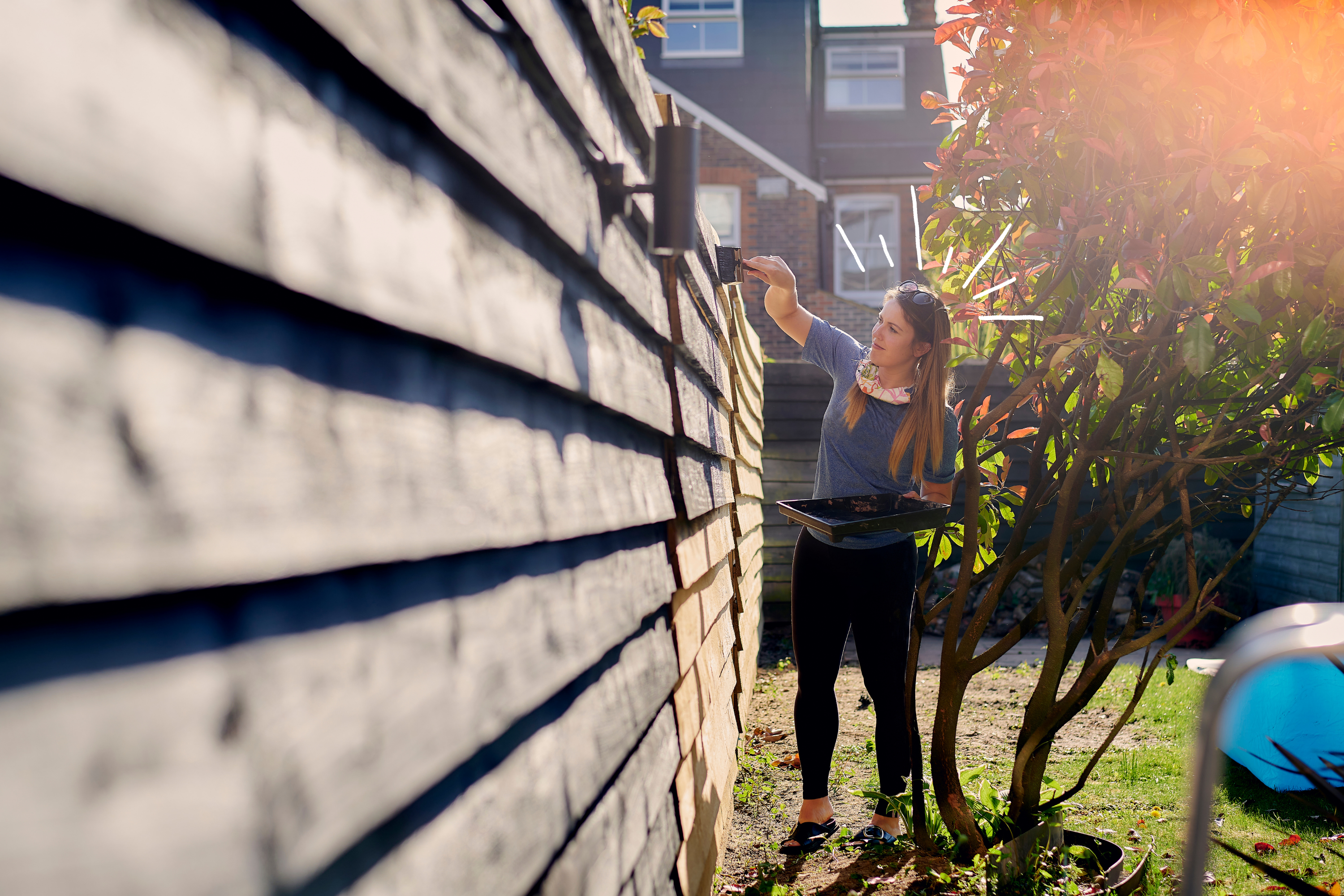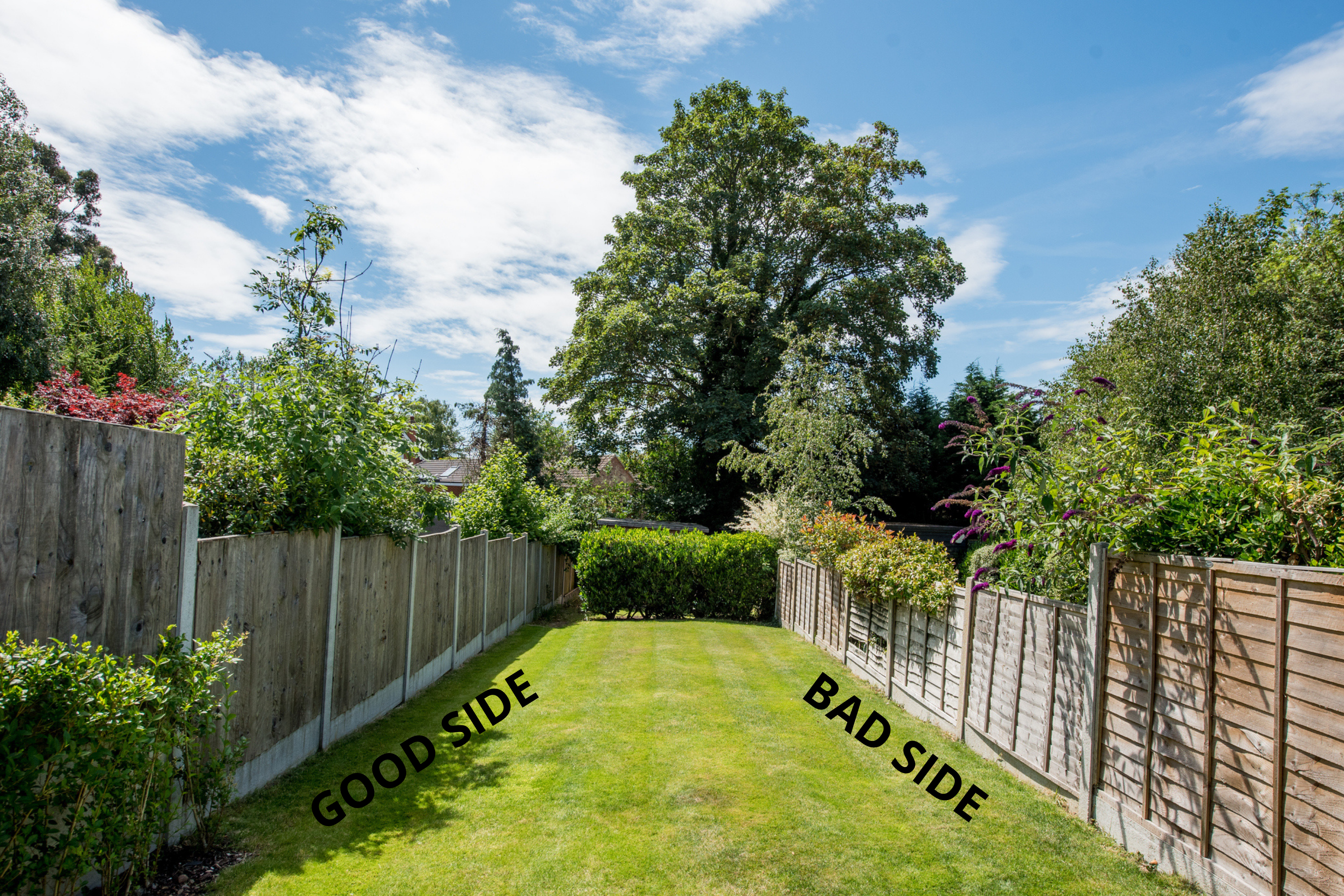Which side of the fence is mine? These are the rules in the UK


Which side of the fence is mine? Whether it's a fence in need of a new lick of paint or one damaged by a recent storm, it's important to know whether or not you're responsible for its restoration.
If you live in a completely stand-alone house, the answer to the question is easy. All fences are naturally your responsibility. What if you live in a semi-detached house or a terraced house? You'll share at least one wall with your neighbour. But much like the debate around what time builders can start work in the UK, the answer to this question isn't necessarily an easy one.
There are several ways to figure out which fence is yours - take a look at these top four.
Which side of the fence is mine?
Find the information in office copies
It's a topic of common debate among neighbours but unfortunately, there is not a general rule on which side of the fence belongs to one person and which side belongs to the neighbour. This goes for the left and right of the property as well as the rear, CJHH Solicitors say. "If the ownership of the wall or fence is not evident from the office copies, the party shown to have maintained the fence may be deemed to be the owner of it," they explain.
This means that to discover which neighbour owns which fence, you have to dive into the office copy - otherwise known as the title plan and register details - which should be available to you if you own the property. If you rent, speak to your landlord.
Have a look at the boundaries
One of the best ways to figure out which side of the fence is yours is just by looking. While it's certainly not a fail-safe method, boundary lines and fences are often built on the land that belongs to the owner. The furthest edge of the fence makes up the boundary to the property.
To figure out which fence is yours, look at where the frames of the fence are. Those who installed the fence should have erected it facing away from the property who owns it, so that their neighbour gets the "good" side of the fence. This move is then repeated all the way down the road so everyone has one "good" and one "bad" side of the fence. So your fence is the one with the "bad" side facing you.
Parenting advice, hot topics, best buys and family finance tips delivered straight to your inbox.

How can you tell the difference between the good and bad sides? "Certain kinds of fences have a finished side of a 'good side' that looks smoother and more polished than the side with the rails and posts showing," explain The Fence Authority.
Not only is this more polite they say - but it's the standard. "Your property will look a lot nice with the 'good' side facing the outside world. Otherwise, your fence will look like it was installed backwards."
Check with the conveyancer
If you own the property, check with the conveyancer who helped with the purchase. Sometimes they'll hang onto the title deeds and other information which may offer a clue as to which fence you own.
After checking with the conveyancer, you may need to check with the Land Registry if they don't have the information you need.
Figure out who has done the most work on the fence
And if you can't find your answers here, then whoever did the work on the fence previously is considered to be the owner - and therefore responsible.
Video of the week:
It's also best to chat with your neighbour about any work that needs doing to the fence as they may be happy to split the cost 50/50 to have a say - especially if it affects their garden too.

Grace Walsh is a health and wellbeing writer, working across the subjects of family, relationships, and LGBT topics, as well as sleep and mental health. A digital journalist with over six years experience as a writer and editor for UK publications, Grace is currently Health Editor for womanandhome.com and has also worked with Cosmopolitan, Red, The i Paper, GoodtoKnow, and more. After graduating from the University of Warwick, she started her career writing about the complexities of sex and relationships, before combining personal hobbies with professional and writing about fitness.